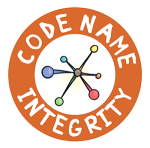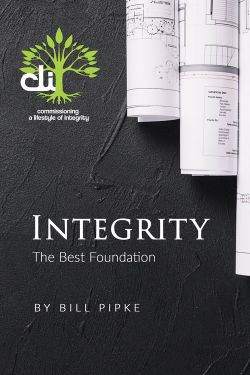Trust - Part 1 Session 1
Welcome to Integrity,: The Best Foundation, the book and video series designed to help you live and lead with integrity.
Today we're going to learn about the Pillar of Trust. Now we've seen that the Pillar of Influence guides the use of our power. The second pillar, the Pillar of Trust, will teach us that the currency of healthy relationships and the foundation of integrity is trust.
For many years, I lived in southwestern Ontario, in Canada. It's a region that's well-known for its fruit and vegetable farms. Local farmers sold fresh produce by placing a fruit stand or a vegetable stand at the end of their lane. And even the way the farmers displayed the fruit told you that they took great pride in what they were doing.
As a buyer, I would stop at the farmer's stand, expecting to buy fresh produce and things just picked that day. And I was attracted to the top quality and the low price.
However, something was missing at every fruit stand: a salesperson was absent. There was nobody at the fruit stand. Instead, there was a sign that indicated the prices, and a metal box with a slot in the top of the lid through which buyers could deposit their money. Sometimes, farmers even left a jar with coins, so that customers could make the exact change.
Now, the fruit stand business is based on trust. There was nothing to prevent the buyer from stealing. The entire commerce relies on trust between the customer and the seller. Now, fruit stands exist in Ontario because mutual trust existed. Without trust, those stands would disappear.
When I was in Zambia, I shared the fruit stand story, and a Zambian told me that when he was a boy, it was exactly the same way: he would go in the morning to the fruit stand, get some food, and leave the money, and bring the food back to his family. Then he smiled and said, "But today, if we left the fruit stand at the end of the lane, the farmer would come back at the end of the day; the money would be gone, the fruit would be gone. Even the stand would be gone," he said with sadness. "And the fruit and vegetables we buy cost us so much more."
So the question is, what does the lack of trust cost? What does it cost a business, a leader, a relationship, or a faith group? If you think about the costs incurred because of a lack of trust, they're extremely high. It disqualifies leaders. It ruins relationships. A lack of trust inflates the cost of doing business. Mistrust destroys reputation. It brings faith into question; and a lack of trust escalates the cost because of insurance, legal fees; it creates security issues, and inflates the price to all consumers.
You know, at one time a person's word could be trusted; a gentlemen's agreement; a simple handshake forged an unbreakable agreement. You didn't need to search through the small print of a legal document, or hire a lawyer. Your "yes" meant exactly that: Yes.
Now, Coles and Posner polled 75,000 respondents in a variety of countries, and many organizations, and their survey indicated that the number one characteristic desired in leadership was trust. People wanted leaders to be trustworthy, and they expected those from whom they would do business to be trustworthy. Trust is a universal expectation. All of us are tempted, and you might yield to a temptation, but you expect integrity from the people around you. Thieves don't expect to be stolen from. The dishonest don't expect to be lied to. The unfaithful spouse doesn't expect to be cheated on. And the employees who have wasted time never go to their employer and say, 'Please don't pay me for the time I was disengaged'.
We all want to live in a world where we can safely trust others. Now, sometimes, people who know that lying is wrong will be dishonest in order to make people think they're honest. Sometimes, businesses will overpromise on a product to gain a sale. But eventually, those who do this lose their reputation, and they lose their customers. A lack of trust has a hidden cost, and a lack of trust has an ultimate cost. If people can't trust you, they'll stop building a relationship with you. But if people can trust you, they will build a relationship with you.
So here's our group question to begin to discuss:
Have you ever suffered from someone's lack of integrity?
Have you ever done the right thing because it was the right thing and paid the price as a result? Was it worth it?




